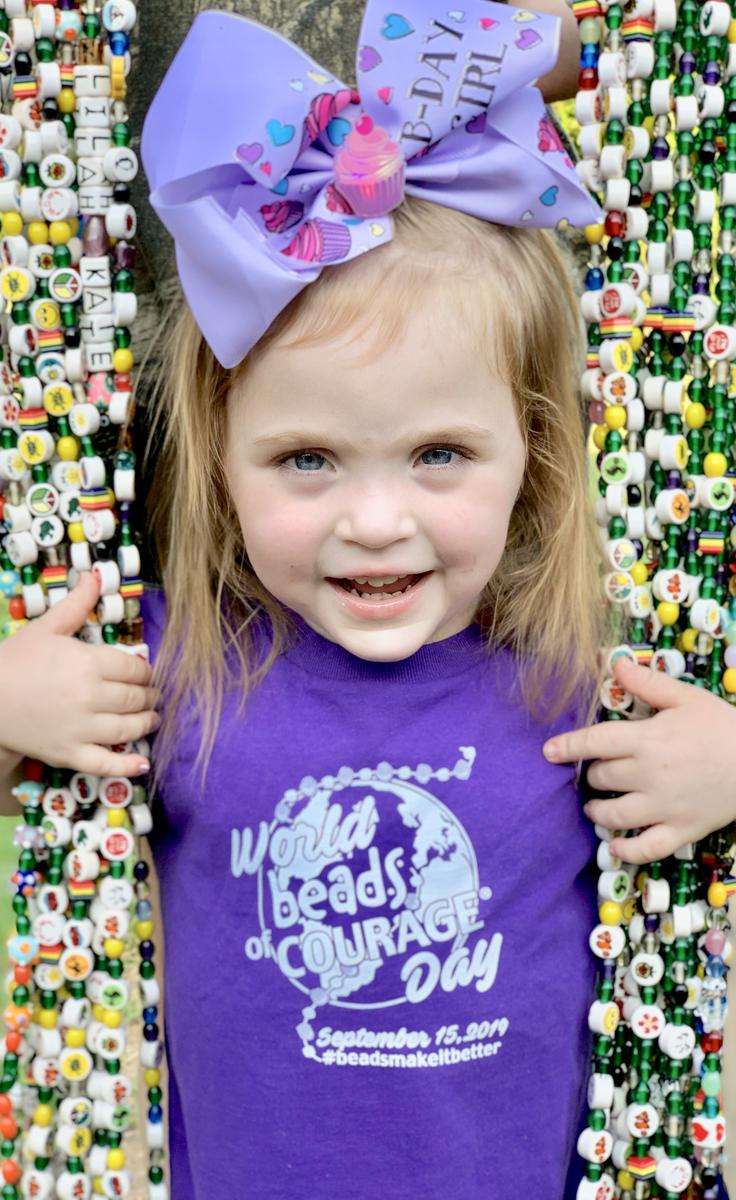A Five-Year-Old Girl in Mississippi is Thriving Thanks to Her New Liver and Kidney Donated by Two Different Family Friends
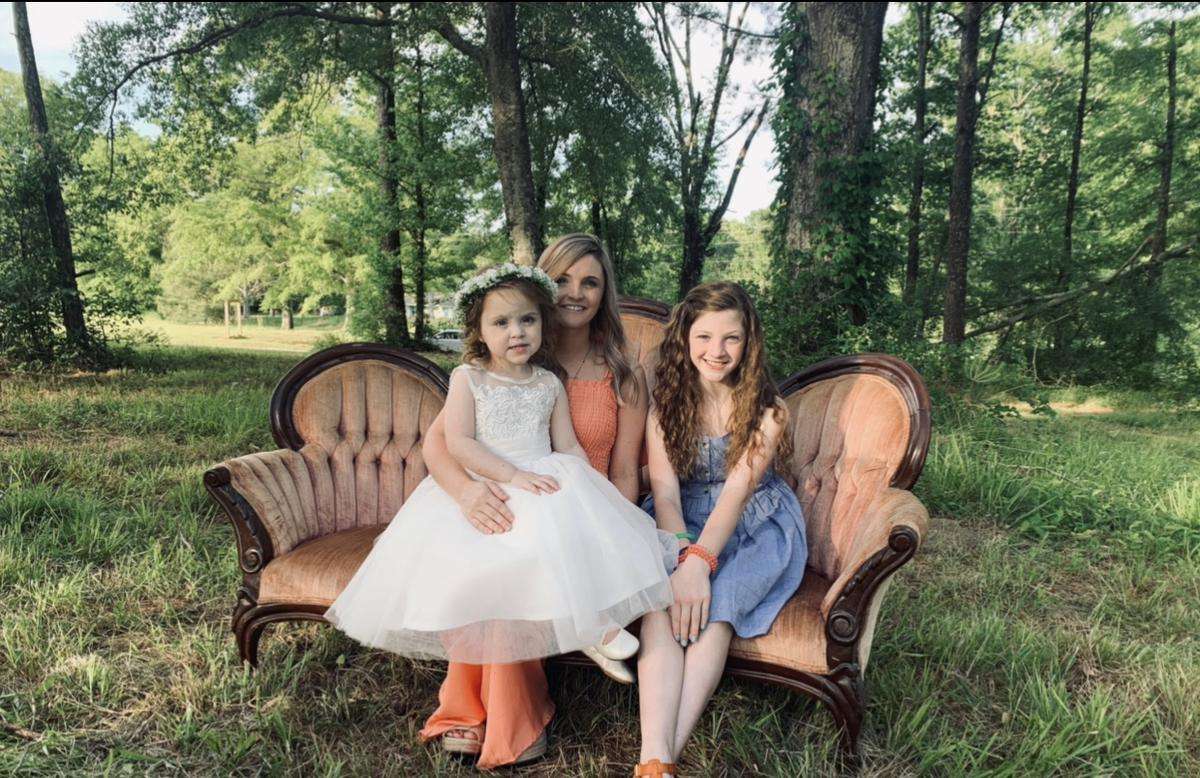
 April 1, 2021 — April is celebrated nationwide as Donate Life Month. National Donate Life Month was instituted by Donate Life America and its partnering organizations in 2003 and features an entire month of local, regional and national activities to help encourage Americans to register as organ and tissue donors, and to celebrate those who have saved lives through the gift of organ and tissue donation.
April 1, 2021 — April is celebrated nationwide as Donate Life Month. National Donate Life Month was instituted by Donate Life America and its partnering organizations in 2003 and features an entire month of local, regional and national activities to help encourage Americans to register as organ and tissue donors, and to celebrate those who have saved lives through the gift of organ and tissue donation.
This month, Lilah Kate Joiner’s family and friends will undoubtedly be promoting donor awareness as a way to thank the two living donors who stepped up and selflessly donated the partial liver and kidney that saved the little girl’s life during the summer of 2018.
Lilah Kate was born in Jackson, Mississippi, in September 2015. But it was before Lilah Kate ever entered this world that her parents, Katherin and Tanner, knew their baby would be born with serious health challenges. At Katherin’s 30-week pregnancy check it was discovered the baby she was carrying had Autosomal Recessive Polycystic Kidney Disease (ARPKD), which is a rare genetic condition that causes cysts to develop in the kidneys resulting in loss of function and the failure of other organs. A specialist told the couple the baby would likely only live one hour after being born — if she even survived until that point. Katherin and Tanner were devastated but tried to remain positive for many reasons including their daughter Makenzie who was excited to meet her new baby sister.
When Lilah Kate decided to make her arrival, she spent three weeks in the Neonatal Intensive Care Unit (NICU) at the University of Mississippi Medical Center in Jackson. They were thrilled to bring Lilah Kate home in early December and according to Katherin, their beautiful baby girl was doing great. Just as the family was getting settled into their routine at home, Tanner was involved in a fatal automobile accident. Katherin’s world had turned upside down twice in a matter of weeks. But she did what she could do and stayed focused on the girls’ needs, including Lilah Kate’s extensive medical care.
In December when she was three months old, Lilah Kate was admitted to Batson Children’s Hospital in Jackson,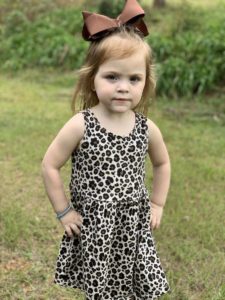 Mississippi, due to a respiratory virus. Lilah Kate spent the entire month there on life support with the staff unable to assure Katherin her baby was going to pull through. Lilah Kate was eventually life-flighted to Children’s of Alabama in Birmingham for further care and evaluation. On February 5, 2016, she underwent surgery to have both of her polycystic kidneys removed, hernias repaired and a g-tube placed for feedings. Her kidneys had become so enlarged she was no longer able to breathe on her own. Many days after that major surgery, Lilah Kate was finally taken off the ventilator and Katherin started to feel a tiny sense of relief.
Mississippi, due to a respiratory virus. Lilah Kate spent the entire month there on life support with the staff unable to assure Katherin her baby was going to pull through. Lilah Kate was eventually life-flighted to Children’s of Alabama in Birmingham for further care and evaluation. On February 5, 2016, she underwent surgery to have both of her polycystic kidneys removed, hernias repaired and a g-tube placed for feedings. Her kidneys had become so enlarged she was no longer able to breathe on her own. Many days after that major surgery, Lilah Kate was finally taken off the ventilator and Katherin started to feel a tiny sense of relief.
When they were finally released to return home to Mississippi, Katherin had to perform peritoneal dialysis each night while Lilah Kate laid in her crib. Right before her first birthday in September, Lilah Kate again developed significant complications. She had to undergo another surgery to have a catheter placed in her chest while at the same time removing the catheter from her stomach. Lilah Kate was then placed on hemodialysis, which meant Katherin took her to Children’s of Alabama four to five times each week for the four-hour sessions.
Lilah Kate also had physical and occupational therapy every week with visits from early intervention professionals who came to their home. She has had multiple surgeries, procedures, lab work and hospitalizations. ARPKD affects more than just the kidneys and by this point, Lilah Kate’s liver was so damaged it would need to be replaced as well. According to Katherin, “Lilah Kate gave us so many scares but proved over and over again she was a fighter.”
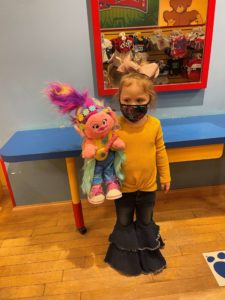 After much research and many conversations, Katherin decided to travel to UPMC Children’s Hospital of Pittsburgh due to their positive outcomes with multiple organ transplants in children. The trip from Birmingham to Pittsburgh was an 11-hour, one-way drive covering more than 750 miles. Unknown to her at the time, Katherin would be making this trip many times.
After much research and many conversations, Katherin decided to travel to UPMC Children’s Hospital of Pittsburgh due to their positive outcomes with multiple organ transplants in children. The trip from Birmingham to Pittsburgh was an 11-hour, one-way drive covering more than 750 miles. Unknown to her at the time, Katherin would be making this trip many times.
During their first trip to UPMC for Lilah Kate’s transplant evaluation, a transplant social worker introduced Katherin to the Children’s Organ Transplant Association (COTA) and suggested she reach out to learn more about how COTA might be able to help. Katherin called COTA on June 28, 2017, and started to breathe easier.
“During my very first phone call with COTA, I instantly could tell how amazing they were and knew that we needed to become a COTA family,” Katherin said. “I simply cannot adequately express the sense of relief I felt knowing that I could focus all of my attention on Lilah Kate and not worry about being unable to take care of my girls.”
COTA received Lilah Kate’s paperwork one day after Katherin’s initial call to COTA, and the Joiner family officially became part of the COTA Family.
The Children’s Organ Transplant Association (COTA) uniquely understands that parents who care for a child or young adult before, during and after a life-saving transplant have enough to deal with, so COTA’s model shifts the responsibility for fundraising to a team of trained volunteers. COTA is a 501(c)3 charity so all contributions to COTA are tax deductible to the fullest extent of the law, and COTA funds are available for a lifetime of transplant-related expenses.
On September 9, 2017, a COTA fundraising specialist trained the family’s large group of volunteers via teleconference due to Hurricane Irma. The COTA staff member talked to the teleconference participants about COTA’s fundraising process and shared information about fundraising templates, fundraising guidance and the no-cost website the volunteers and family would be given for fundraising and promoting the family’s story. This group of Miracle Makers quickly got to work organizing fundraisers for COTA in honor of Lilah Kate to help with mounting transplant-related expenses. These COTA volunteers worked nonstop to plan and implement creative COTA fundraisers that generated nearly $70,000 for transplant-related expenses.
teleconference due to Hurricane Irma. The COTA staff member talked to the teleconference participants about COTA’s fundraising process and shared information about fundraising templates, fundraising guidance and the no-cost website the volunteers and family would be given for fundraising and promoting the family’s story. This group of Miracle Makers quickly got to work organizing fundraisers for COTA in honor of Lilah Kate to help with mounting transplant-related expenses. These COTA volunteers worked nonstop to plan and implement creative COTA fundraisers that generated nearly $70,000 for transplant-related expenses.
Lilah Kate was officially listed on the national transplant registry for a liver and a kidney on July 31, 2017. Donate Life America, a nonprofit organization that works to increase the number of donated organs and tissues, provides education about living donation and manages the National Donate Life Registry (RegisterMe.org) where individuals can register to be organ and tissue donors.
After being on the national waiting list for some time, Lilah Kate’s transplant team recommended they start a search for living organ donors. Back home in Mississippi, friends and family members were closely following Lilah Kate’s transplant journey while planning and attending COTA for Lilah Kate fundraising events. Through social media, the COTA-provided website and local media coverage, Lilah Kate’s search for living donors became well known in the family’s hometown area. Katherin’s best friend’s husband, Joseph Smith, registered as her living donor without hesitation because he was inspired by Lilah Kate’s strength and courage.
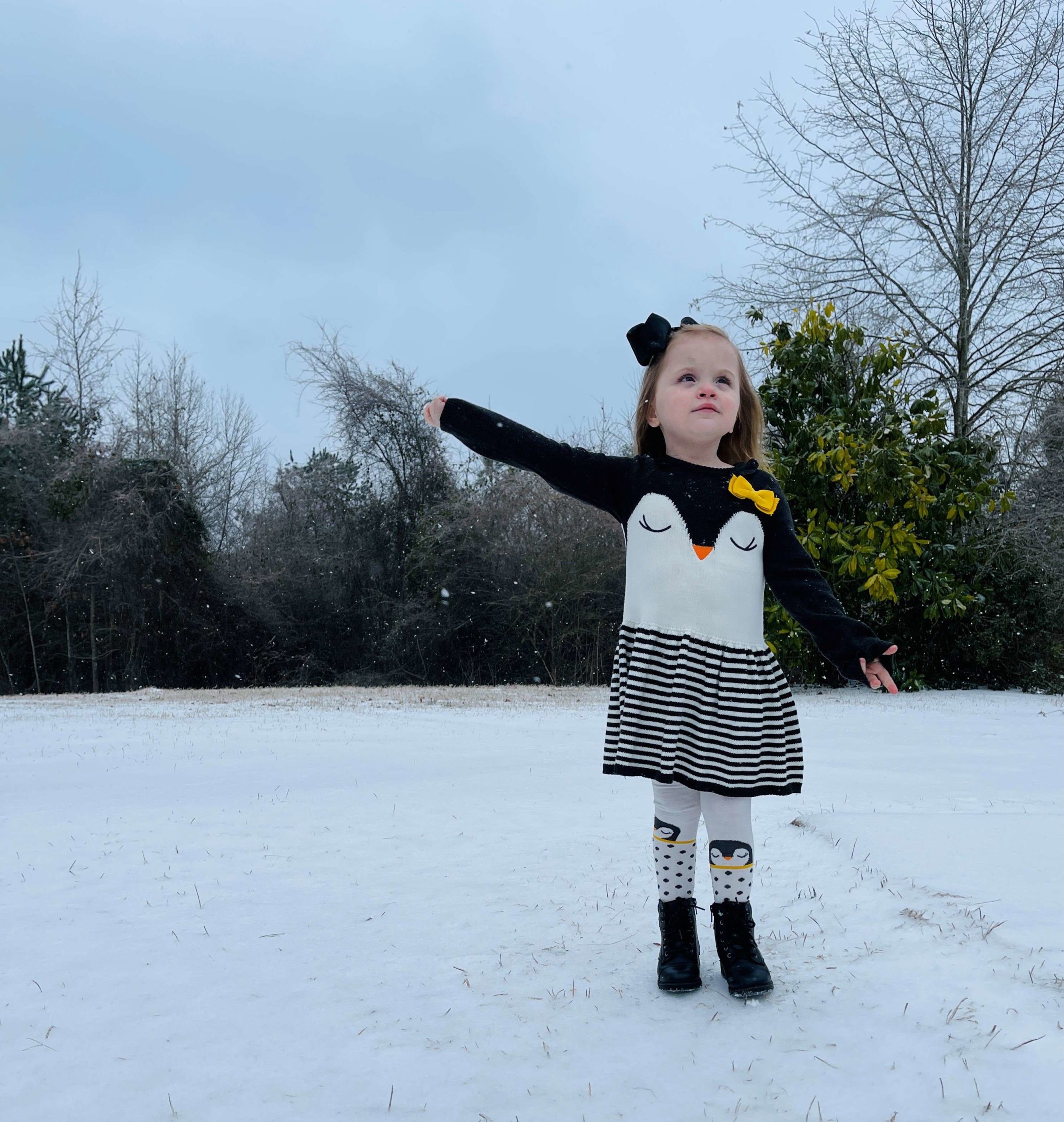 “I had no idea when I met Joey Smith years ago that he would one day offer my child a gift that I could never repay him for,” said Katherin. “He was the first person tested to be Lilah Kate’s living liver donor and he was a match! I cannot tell you how many tears I have shed over this whole situation or how many people Lilah Kate proudly told she was ‘getting Joey’s wiver.’ It is like she understood the whole thing and she was not even three years old.”
“I had no idea when I met Joey Smith years ago that he would one day offer my child a gift that I could never repay him for,” said Katherin. “He was the first person tested to be Lilah Kate’s living liver donor and he was a match! I cannot tell you how many tears I have shed over this whole situation or how many people Lilah Kate proudly told she was ‘getting Joey’s wiver.’ It is like she understood the whole thing and she was not even three years old.”
“How do you thank someone in a situation like this? There is no way to explain how your heart feels to know someone is willing to give up a piece of themselves and put themselves at risk to save your child’s life. There simply are no words,” Katherin said.
COTA volunteers and Katherin used the COTA website and their social media platforms to let people know a kidney donor was still needed. The airwaves were flooded with this message: We are still actively searching for a kidney donor for Lilah Kate because they will not transplant her until we have both donors.
A close family friend, Missy Lathem, saw the post on Facebook and volunteered to be tested. Like Joseph, she was the first and only potential kidney donor tested because she, too, was a perfect match. Immediately the transplant team in Pittsburgh initiated the necessary paperwork, final testing and preparations.
Exactly one year after being listed on the national donor registry, Lilah Kate received a portion of Joseph’s liver on July 31, 2018, and then received one of Missy’s kidneys the next day, August 1, 2018. Katherin remembers the transplant surgeon telling her Lilah Kate likely only had a few months left to live due to the condition of her highly damaged liver. These living donors and long-time family friends will forever be Lilah Kate’s life-saving heroes.
“Our family is also so very grateful for all of our heroes including the many COTA volunteers who have worked tirelessly to raise funds for transplanted-related expenses,” Katherin said. “COTA funds raised in honor of Lilah Kate have been used for travel and lodging for the many trips back and forth, medications, various doctor and specialists’ appointments, food, living donor costs and much more. I am not sure where we would be on this journey if we had not become a COTA family.”
She continued, “COTA has supported our family by working side-by-side with our COTA for Lilah Kate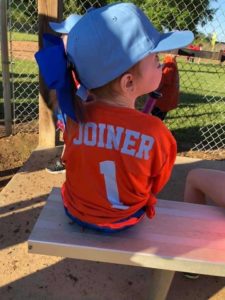 volunteers to help them organize and coordinate successful fundraising events. There were many times when ideas or questions were thought of in the middle of the night and a message sent. Our volunteers would have an answer first thing the next morning!”
volunteers to help them organize and coordinate successful fundraising events. There were many times when ideas or questions were thought of in the middle of the night and a message sent. Our volunteers would have an answer first thing the next morning!”
Today Lilah Kate eats whatever she wants and that is her most favorite thing about having her new liver and kidney. She also loves to go and enjoy life every day without being hooked to a machine or getting life-sustaining lines tangled with alarms going off. She loves gymnastics and is about to start playing t-ball. Lilah Kate is very excited about being able to swim this summer. She follows big sister, Makenzie, everywhere she goes. While this is likely annoying, it is a sure sign that Lilah Kate is living life to the fullest as the little sister who is most definitely in charge. She is now dreaming of what she wants to be and cannot wait to start Kindergarten in August. At this point, Lilah Kate is leaning toward becoming a chef and a doctor.
“As a widowed mom with a child who has many medical needs, I worried so much about the financial strain Lilah’s liver and kidney transplants would put on our family,” Katherin said. “After my first call to COTA I immediately felt relieved about everything and I started to breathe a little easier. COTA has allowed me to start dreaming about both of my daughters’ futures knowing that funds for transplant-related expenses and COTA’s guidance and support are with us now and will continue to be … for a lifetime.”
She continued, “COTA has been such a blessing for our family in many ways and we are so very thankful for all they do. Even with the uncertainty in our world, it is good to know our family can count on COTA through it all.”
Nationwide, April is the month that is dedicated to raising awareness about the need for registered organ and tissue donors. Many COTA families are waiting for life-saving transplants like Lilah Kate received. You can visit www.RegisterMe.org to indicate your wish to be a life-saving donor. Every day 20 people die waiting for an organ transplant here in the United States. One organ donor can save eight lives.

